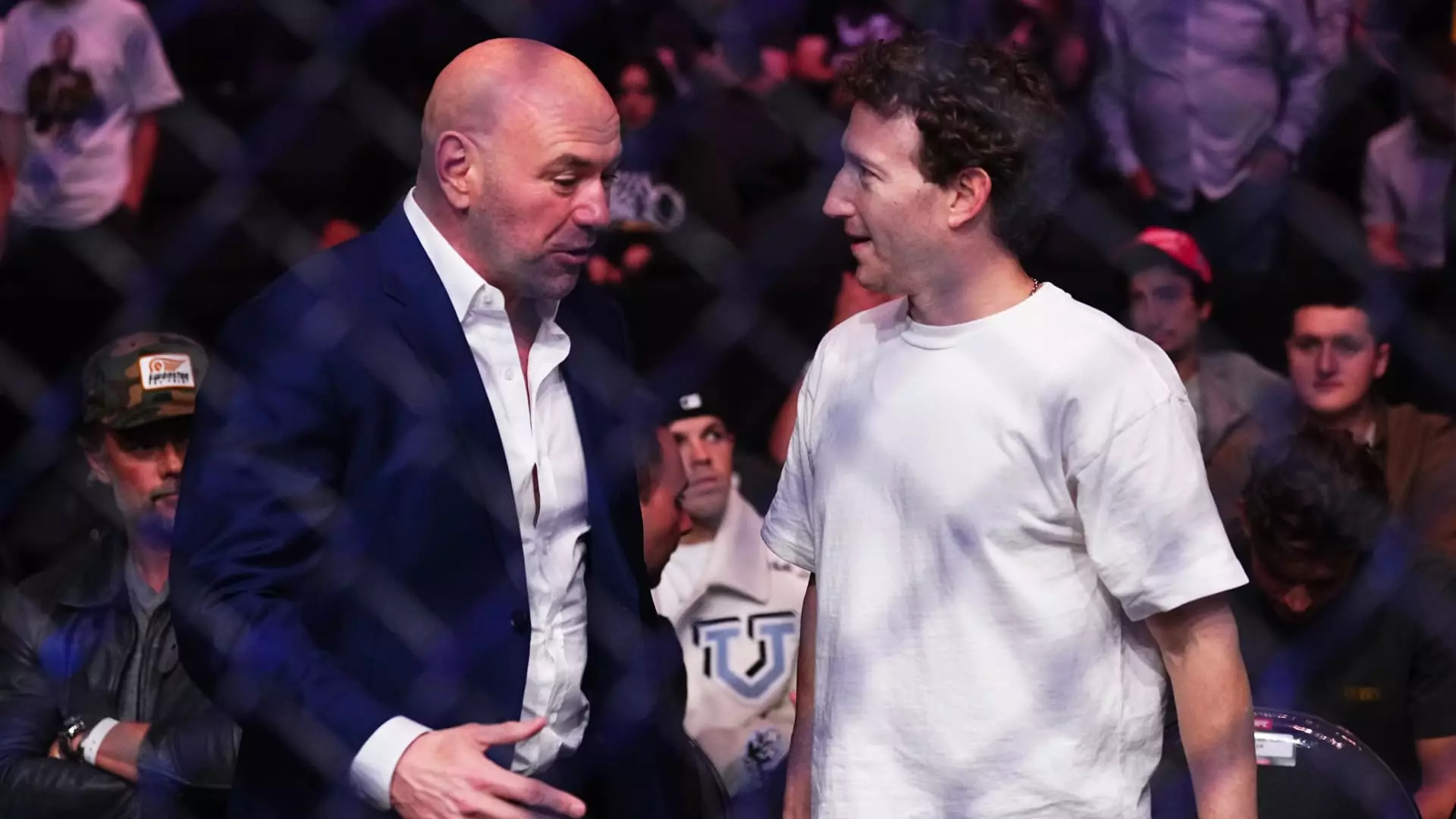When two giants in their respective fields forge a partnership, the implications can be felt across industries. The new multimillion-dollar deal between TKO Group’s UFC and Meta certainly fits this bill. This collaboration, described as a historic union, promises to revolutionize how fans interact with mixed martial arts (MMA), leveraging cutting-edge technology to enhance the sport’s already significant engagement. Yet, while some hail this union as a leap forward, it’s vital to remain cautiously optimistic. The integration of Meta’s state-of-the-art technology with UFC’s thrilling brand presents both unprecedented opportunities and potential pitfalls.
Fan Engagement in a Digital Age
As UFC engages with a tech titan like Meta, the promise of immersive experiences becomes more tangible. Meta’s technology suite, which encompasses everything from virtual reality with Meta Quest to social media dominance on platforms like Instagram and WhatsApp, allows for innovative interactions with fans. However, the integration of such technology does raise questions about whether these advancements will genuinely enhance the audience experience or simply serve as a marketing gimmick.
Dana White, the UFC President and CEO, expressed confidence that “Mark and his team at Meta are going to do things that will blow away UFC fans.” Yet, echoed in that optimistic proclamation is the concern over whether these innovations will cater solely to tech-savvy demographics. Will the traditional UFC fan, who loves the raw energy of a live fight, be left behind in this swift technological tide? The challenge lies in genuinely enriching the fan experience while embracing the nuances of a sport steeped in personal narratives and human emotion.
The Complicated Web of Commercial Interests
While the partnership with Meta is designed to strengthen UFC’s engagement strategies, it is worth contemplating the underlying motivations that drive such collaborations. UFC’s exclusive negotiating window with ESPN, which wraps up soon, casts a shadow of uncertainty on broadcasting rights. As ESPN opts out, the timing of this partnership raises eyebrows—does it signal that UFC is utilizing Meta’s financial backing to leverage a more lucrative deal in its media rights discussions?
Moreover, as Meta positions itself as UFC’s “official fan technology partner,” the definition and scope of such a partnership become critical. The potential commercialization could dilute the raw, competitive spirit of the sport, pivoting its landscape to favor corporate strategies over authentic fan engagement. Will the priority shift from athletic prowess to playful algorithms designed to keep viewers hooked? It remains to be seen how these changes will shape the essence of the UFC.
CEO Connections and Cultural Dynamics
Clients often question the power dynamics within high-level corporate partnerships, but the camaraderie between Zuckerberg and White adds a layer of intrigue—one that can either fortify or weaken the deal’s fundamentals. While Zuckerberg has integrated himself into the combat sports culture, the specter of “masculine energy” and its potential for fostering a culture of aggression within Meta’s framework stirs up unfounded narratives.
Zuckerberg’s musings on masculinity and combat sports, juxtaposed with his high-risk pastime pursuits, paint him as a figure veering into controversial territory. Not only could this influence Meta’s collaborations, but it also raises a broader question—can corporate leadership embody cultural ideals without crossing into glorification of aggression? As UFC aims to push boundaries with Meta’s support, these cultural undercurrents must be examined carefully; the fine balance between embracing tradition and advancing innovation is palpable.
Reinforcing Value in an Era of Change
The reality of this partnership remains tethered to a deeper societal need for connectivity and relevance in combat sports. The concept of exclusivity bred through Meta’s branding saturating UFC pay-per-view events may herald an evolved viewer experience; however, it arrives bundled with a critical examination of consumer power. Just as UFC fights engage crowds with anticipation and excitement, so too must Meta ensure its technology respects and enhances the integrity of this demanding sport.
While reports forecast that exclusive UFC content will stream on Meta’s Threads, anticipating a windfall of marketing successes, is there concern regarding the continual elevation of commercial interests over the sport itself? It becomes crucial for fans and stakeholders to scrutinize how technology serves both the business and the fighters, ensuring a future that is as bright as it is authentic. Ultimately, the strengths and weaknesses of this alliance will reflect wider trends in both sports and technology, challenging MMA’s current culture while promising a transformative evolution.

